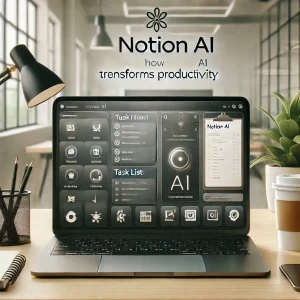AI Chatbots vs Human Support: The Great Debate of 2024
The landscape of customer support is evolving rapidly, driven by advancements in artificial intelligence and automation. As we navigate through 2024, the debate between AI chatbots and human support has become increasingly relevant. This comprehensive analysis explores the strengths, limitations, and future outlook of both AI chatbots and human support, helping businesses make informed decisions about their customer service strategies.
Introduction to AI Chatbots and Human Support
Overview of AI Chatbots

AI chatbots represent a significant advancement in customer service technology. These automated systems are powered by artificial intelligence, specifically machine learning and natural language processing (NLP). They are designed to simulate human conversation and interact with users through text or voice. AI chatbots can handle a variety of tasks, from answering frequently asked questions to providing personalized recommendations based on user data. Their ability to process and analyze large volumes of data allows them to offer quick and accurate responses, making them a valuable tool for businesses aiming to enhance efficiency and customer satisfaction.
The development of AI chatbots has been fueled by improvements in machine learning algorithms and NLP techniques. These advancements enable chatbots to understand context, recognize intent, and generate relevant responses. For instance, modern chatbots can manage complex interactions by leveraging pre-trained models and real-time data. This capability is essential for delivering consistent support and meeting the diverse needs of users.
Overview of Human Support
Human support, on the other hand, involves direct interaction with customer service representatives who provide assistance through personal communication. Human agents are equipped with emotional intelligence and the ability to understand nuanced situations, which are crucial for managing complex or sensitive issues. Unlike AI chatbots, human agents can interpret subtle cues, such as tone and body language, allowing them to address customer concerns with empathy and understanding.
Human support has been the traditional backbone of customer service, valued for its ability to build genuine connections and resolve intricate problems. Despite the growing capabilities of AI chatbots, human support remains indispensable for its capacity to handle scenarios that require personalized attention and nuanced judgment. The human touch in customer interactions helps build trust and ensures that customers feel valued and understood.

The Evolution of Customer Support
The evolution of customer support has been marked by the integration of new technologies and a shift towards more automated solutions. Traditional customer service relied heavily on human agents, but the rise of AI and automation has introduced new methods for handling customer interactions. This transformation has led to a hybrid approach, where businesses combine AI chatbots with human support to create a more efficient and effective customer service model.
As technology continues to advance, the role of AI chatbots in customer support is expected to grow, offering enhanced capabilities and new opportunities for businesses. At the same time, the importance of human support will persist, particularly in scenarios that demand empathy, creativity, and complex problem-solving. The future of customer support will likely involve a balanced integration of AI and human elements, optimizing the strengths of both approaches.
Advantages of AI Chatbots
24/7 Availability and Scalability
One of the most significant advantages of AI chatbots is their ability to provide 24/7 support. Unlike human agents, chatbots do not require breaks, sleep, or time off, enabling them to assist customers at any time of day or night. This continuous availability ensures that customers can access support whenever they need it, regardless of time zones or business hours.
The scalability of AI chatbots is another key benefit. They can handle an unlimited number of interactions simultaneously, making them ideal for managing high volumes of customer inquiries. This scalability is particularly valuable for businesses with large customer bases or those experiencing seasonal spikes in demand. By automating routine tasks and inquiries, chatbots help businesses maintain consistent service levels and avoid delays.
Cost Efficiency and Automation
AI chatbots offer significant cost savings by automating repetitive and routine tasks. Tasks such as answering frequently asked questions, processing simple requests, and providing basic information can be efficiently managed by chatbots, reducing the need for a large team of customer service representatives. This automation not only lowers operational costs but also allows businesses to allocate resources more effectively.
The cost efficiency of AI chatbots extends to their ability to reduce human error and improve accuracy. By following predefined algorithms and accessing a vast database of information, chatbots provide consistent and reliable responses. This reliability is crucial for maintaining high service standards and ensuring that customers receive accurate information.
Data-Driven Insights and Personalization
Modern AI chatbots are equipped with advanced analytics capabilities that provide valuable insights into customer behavior and preferences. By analyzing interaction data, chatbots can deliver personalized recommendations and tailor responses to individual users. This data-driven approach enhances the customer experience by offering relevant and timely support.
Personalization is a key factor in customer satisfaction and loyalty. AI chatbots can use data from previous interactions, purchase history, and browsing behavior to offer customized solutions and suggestions. This level of personalization helps businesses build stronger relationships with their customers and increase engagement.
Benefits of Human Support
Emotional Intelligence and Empathy
Human support excels in areas where emotional intelligence and empathy are essential. Human agents can perceive and respond to emotional cues, offering reassurance and understanding in ways that AI chatbots currently cannot. This empathetic approach is particularly important when dealing with sensitive issues, such as complaints or personal concerns.
The ability to connect with customers on an emotional level helps build trust and rapport. Human agents can provide personalized support that addresses not only the technical aspects of a problem but also the emotional impact on the customer. This human touch can make a significant difference in customer satisfaction and loyalty.
Handling Complex and Sensitive Issues
While AI chatbots are effective for managing straightforward queries, they may struggle with complex or nuanced situations that require a deep understanding of context. Human agents are better equipped to handle such scenarios, using their judgment and experience to provide appropriate solutions.
Complex issues, such as troubleshooting technical problems, resolving disputes, or addressing intricate service requests, often require a nuanced approach that AI chatbots may not be able to provide. Human support offers the flexibility and expertise needed to navigate these challenges and deliver satisfactory outcomes.
Building Strong Customer Relationships
Human support plays a crucial role in building and maintaining strong customer relationships. Through personalized interactions, human agents can create a positive and lasting impression, fostering trust and loyalty. Engaging in meaningful conversations and demonstrating genuine concern for customer needs helps strengthen the connection between the business and its customers.
Building strong relationships with customers is essential for long-term success. Human agents can address customer concerns with a personal touch, providing valuable insights and recommendations that go beyond automated responses. This personalized approach contributes to a positive customer experience and enhances brand loyalty.
Comparing Effectiveness
Response Time and Accuracy
AI chatbots are known for their rapid response times and ability to handle high volumes of interactions efficiently. This speed is advantageous for providing quick solutions to common queries and ensuring that customers receive timely support. However, there may be limitations in accuracy, particularly when dealing with complex issues that require human judgment.
Human support, while potentially slower in response time, offers higher accuracy and precision in resolving intricate problems. Human agents can leverage their expertise and experience to provide accurate solutions and address complex inquiries that may exceed the capabilities of AI chatbots.
Customer Satisfaction and Experience
Customer satisfaction is influenced by various factors, including response time, resolution quality, and overall interaction experience. AI chatbots can enhance satisfaction by providing instant support and consistent responses. However, for issues requiring empathy or nuanced understanding, human support may lead to higher satisfaction due to its personalized approach.
The overall customer experience is shaped by the effectiveness of both AI chatbots and human support. While chatbots offer convenience and efficiency, human support adds a personal touch that can significantly impact customer satisfaction. Balancing these elements is key to delivering a comprehensive and positive customer experience.
Adaptability and Learning Curve
AI chatbots are continually improving through machine learning, but they may face challenges in adapting to new scenarios or evolving customer expectations. Businesses must regularly update and train their chatbots to ensure they remain effective and relevant.
Human agents possess the flexibility and adaptability to handle a wide range of situations and adjust their approach based on experience. This adaptability is crucial for managing unexpected scenarios and addressing unique customer needs. Combining AI chatbots with human support allows businesses to leverage the strengths of both approaches and enhance overall effectiveness.
Challenges and Limitations
AI Chatbots: Technical and Ethical Concerns
AI chatbots face technical and ethical challenges that must be addressed to ensure responsible use. Technical limitations include difficulties in understanding context and handling ambiguous queries. While AI chatbots have made significant progress, there are still areas where they may struggle to provide accurate or appropriate responses.
Ethical concerns revolve around privacy, security, and transparency in chatbot interactions. Chatbots handle sensitive data, such as personal information and payment details, making it essential to implement robust security measures to protect customer data. Compliance with data privacy regulations, such as GDPR and CCPA, is also crucial for maintaining customer trust.
Human Support: Cost and Resource Constraints
Human support comes with its own set of challenges, including higher costs and resource constraints. Maintaining a large team of customer service representatives requires significant investment in training and infrastructure. Additionally, managing high volumes of inquiries can be challenging, particularly during peak periods.
The cost of human support can be substantial, and businesses must carefully evaluate their resource allocation to balance efficiency and effectiveness. Implementing strategies to optimize human support, such as leveraging AI chatbots for routine tasks, can help manage costs while maintaining high service standards.
Balancing AI and Human Interaction
Finding the right balance between AI chatbots and human support is crucial for delivering optimal customer service. Businesses must assess their needs, customer preferences, and operational capabilities to determine the best approach. Integrating AI and human support can create a seamless and effective customer service experience.
A hybrid approach allows businesses to leverage the strengths of both AI and human elements, optimizing efficiency and customer satisfaction. By carefully managing the interaction between AI chatbots and human support, businesses can provide comprehensive and personalized service that meets the diverse needs of their customers.
The Future of Customer Support
Trends and Innovations in AI Chatbots
The future of AI chatbots is marked by ongoing innovations and advancements. Emerging technologies, such as enhanced NLP, machine learning algorithms, and integration with other digital tools, will continue to improve chatbot capabilities. These advancements will enable chatbots to handle more complex interactions, provide deeper personalization, and integrate seamlessly with other customer service channels.
AI chatbots are also expected to become more context-aware and capable of understanding nuanced user inputs. This evolution will enhance their ability to deliver relevant and accurate responses, further improving the customer experience.

The Role of Human Support in the AI Era
Human support will remain a vital component of customer service, even as AI technology advances. The human touch will continue to be essential for handling complex and emotionally charged interactions. As AI chatbots become more sophisticated, human support will work in tandem with AI to deliver a comprehensive and effective customer service experience.
The role of human support will evolve to focus on areas where empathy, creativity, and nuanced understanding are required. Human agents will play a key role in managing complex issues, providing personalized recommendations, and building strong customer relationships.
Integrating AI and Human Support for Optimal Results
The future of customer support lies in the integration of AI chatbots and human support. By leveraging the strengths of both approaches, businesses can offer a balanced and effective service model. This hybrid approach will enable businesses to meet diverse customer needs while maximizing efficiency and satisfaction.
Integrating AI chatbots with human support allows businesses to optimize their customer service operations, providing timely and accurate assistance while maintaining a personal touch. This combination will be crucial for delivering a seamless and positive customer experience in the evolving landscape of customer support.
This in-depth blog post provides a thorough examination of the debate between AI chatbots and human support, exploring their advantages, challenges, and future outlook. By understanding the strengths and limitations of both approaches, businesses can make informed decisions about their customer service strategies and achieve optimal results.














Post Comment